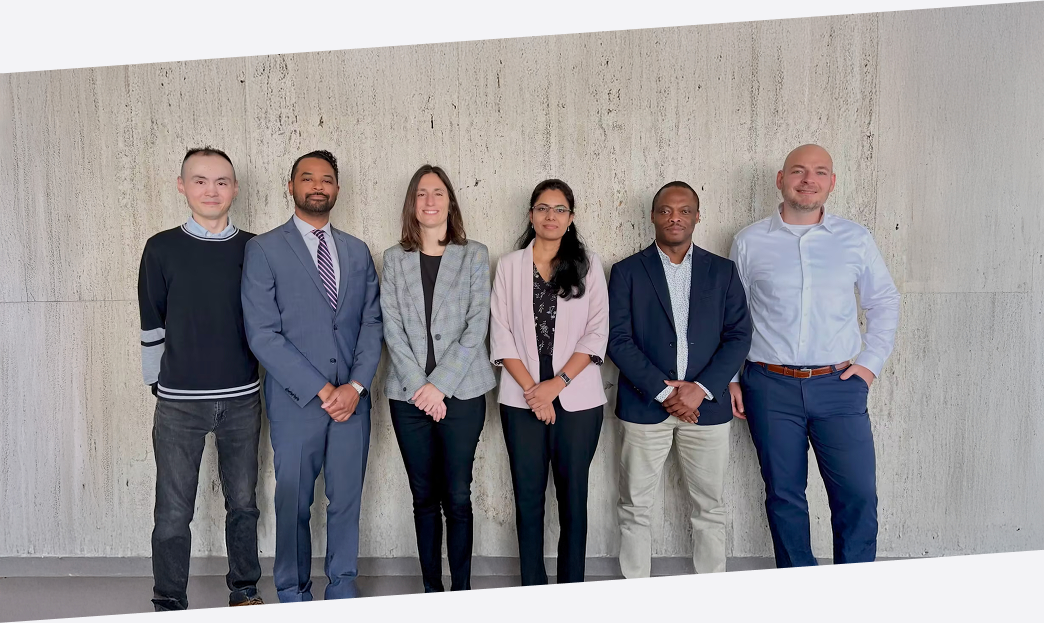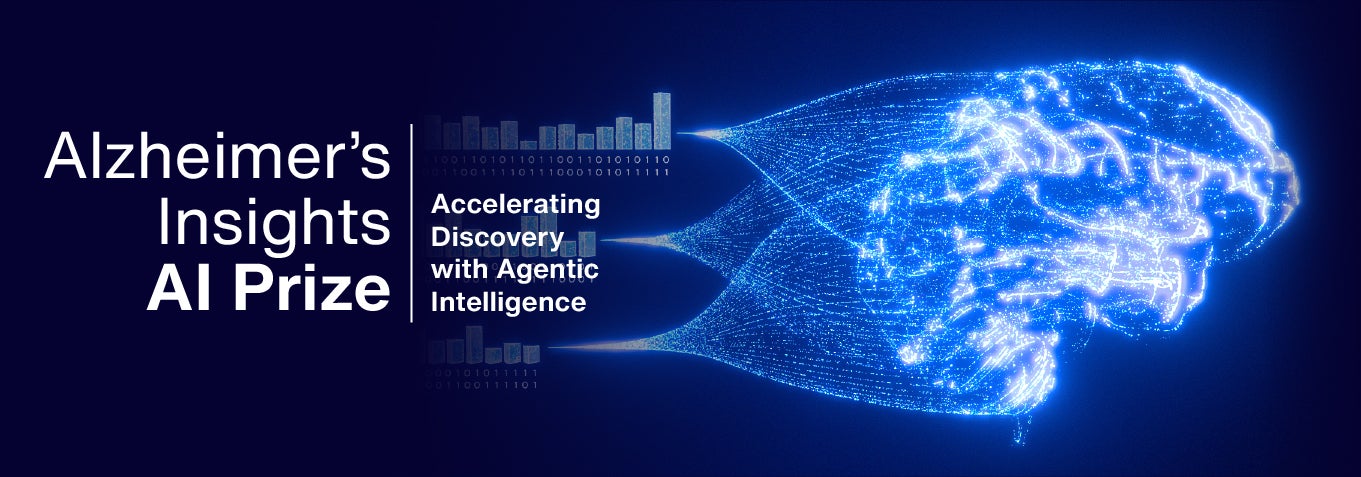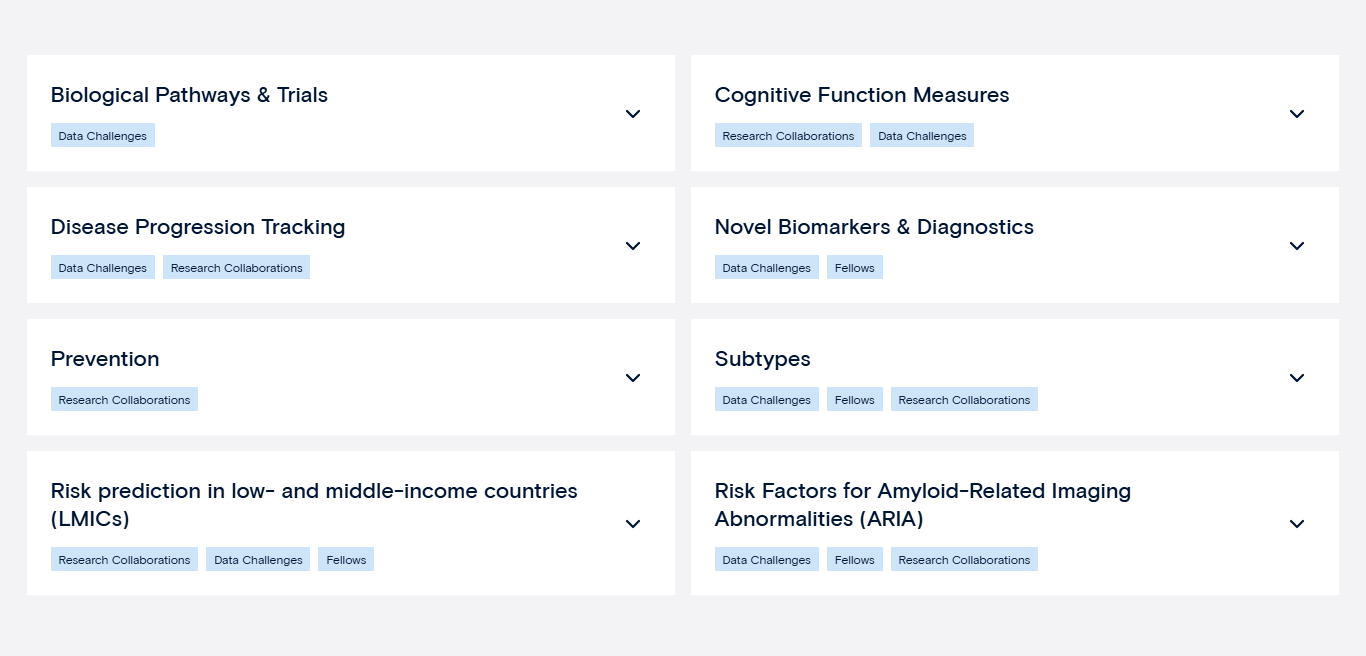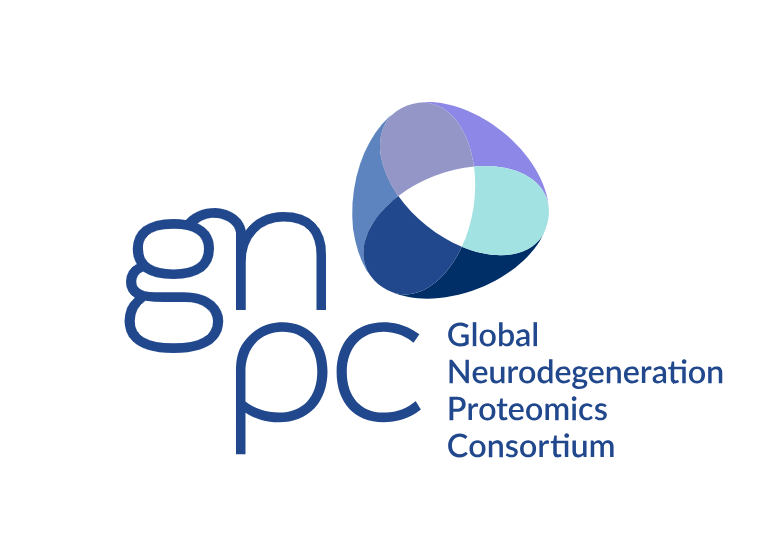AI Explorations
Alzheimer's Insights AI Prize
We're backing visionary AI solutions to accelerate Alzheimer’s research with a $1M Alzheimer's Insights AI Prize. Our goal is to leverage agentic AI to help generate a powerful leap in the pace, scale, and reach of Alzheimer’s disease and related dementias research. The application process closed in September 2025.
The winner will be announced the week of March 16, 2026.

The William Gates Sr. AD Fellowship Program
The William H. Gates Sr. Fellowship from the Alzheimer’s Disease Data Initiative was established to support a new generation of researchers who have novel approaches to end Alzheimer’s disease and related dementias.
Launched in 2023, this two-year program encourages and supports researchers from around the world to be bold, creative, and innovative. This may include generating new hypotheses about the biology of dementia or challenging existing ones; and using novel data analysis ideas or statistical approaches on de-identified human or human-derived data to accelerate new discoveries in ADRD.
Members of the inaugural (2023-2025) cohort have focused on a wide range of topics, including early detection and prediction models, age-based predispositions to AD, and new imaging-based prediction approaches.
Cohort II, to be announced the first half of 2025, will focus more specifically on accelerating progress in AD research through generative artificial intelligence and novel machine learning approaches.
Global Data Challenges
Data Challenges, which bring together cohorts of researchers around a single data set, are designed to generate more interest in AD research and insights into the priority questions and encourage nontraditional researchers and out-of-the-box thinkers to engage with this data.
For example, we are supporting 25 scientists from a variety of disciplines at the Universities of Glasgow and St. Andrews in Scotland and other UK institutions as they study the significant amount of new biomarker data generated from the Global Alzheimer’s Platform Foundation’s Bio-Hermes Study. This study includes multiple blood-based biomarkers, imaging, digital tests, and cognitive tests from over 1,000 subjects, 24% of which are from traditionally underrepresented communities, at 15 different sites across the United States.
We are also engaging with several groups of researchers that will be using data from the UK Biobank to assess the utility of optical coherence tomography for early detection of Alzheimer’s disease. Discussions are also now underway with Vivli and the American Heart Association, among others, on new data challenges.
Scientific Driver Projects
We are working to initiate Driver Projects which focus on standing up targeted/dedicated, global, multi-disciplinary scientific consortia and teams to answer a number of priority research questions. By identifying relevant available datasets and/or existing datasets that need to be unlocked for researcher access, including unpublished data, we hope to aid researchers in improving early detection/diagnosis, stratifying risk factors, and designing better treatment and intervention strategies, including better clinical trial design.
Driver Project teams will have dedicated funding as well as technical advisory groups to guide their proposed efforts.
Global Research Collaborations and Consortia
We offer the AD Workbench environment and suite of tools and resources to several global research collaborations to conduct analyses of data that are not yet public.
For example, the Global Neurodegeneration Proteomics Consortium is analyzing what we believe is the largest proteomics data set ever assembled, consisting of over 300 million protein measurements. This data is now being analyzed by consortium members, after which time it will be made publicly available to the wider research community through AD Workbench.
The Road Ahead
As the AD Data Initiative community continues to grow, we are working to advance our scientific strategy, enhance and expand our product and service offerings, and empower researchers by supporting and enabling collaborative research. Our ongoing efforts include:
Recent Publications
Below are recent articles related to our work and/or informed by researchers and collaborators leveraging AD Workbench and other data sharing platforms and approaches to drive scientific discovery in ADRD.
Driving Research Forward – Together
Further Your Research: Visit the AD Discovery Portal today to explore datasets and request access via AD Workbench.
Interested in accelerating innovation by sharing ADRD data? Learn more here.





